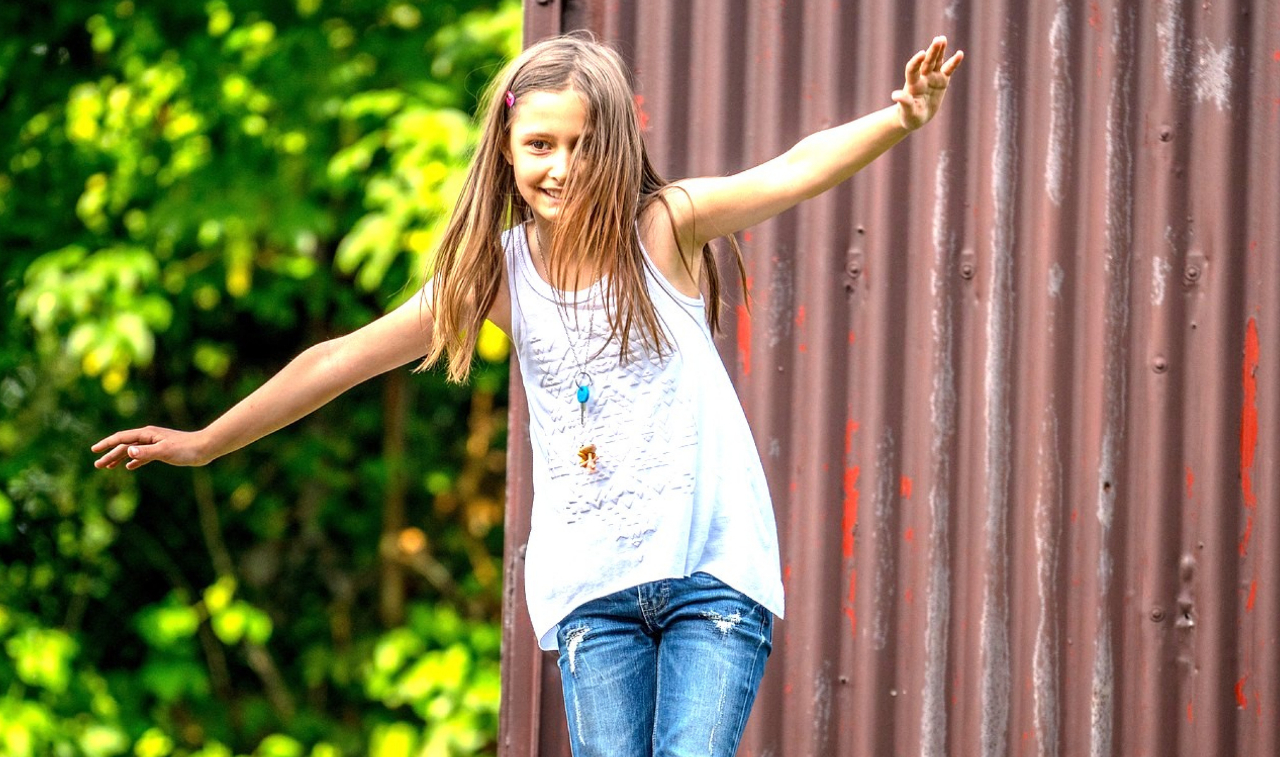Balanced Lifestyle for Children: Goals for Academic, Sports, and Social Development

"It is not enough to be academically smart; you must also be emotionally intelligent." - Oprah Winfrey
In today's fast-paced world, achieving a balanced lifestyle is key to overall well-being and success. It is essential for children to excel not only academically but also in sports and social interactions. Setting goals in these areas empowers children to develop a well-rounded skill set, enhance their academic performance, excel in sports, and foster meaningful relationships. With effective strategies and a supportive platform, parents can guide their children in goal-setting, tracking progress, and celebrating achievements across academic, sports, and social domains. In this article, we will explore the importance of a balanced lifestyle and provide practical tips for parents to help their children set goals for academic, sports, and social development.
The Importance of a Balanced Lifestyle
A balanced lifestyle that encompasses academic, sports, and social development offers numerous benefits for children:
Academic Excellence: Setting goals in academics encourages children to strive for excellence. By setting specific targets, such as improving grades or mastering certain subjects, children develop effective study habits, time management skills, and a strong work ethic.
Physical Fitness and Skill Development: Incorporating sports goals promotes physical fitness, skill development, and teamwork. It instills discipline, perseverance, and resilience, while also fostering a healthy and active lifestyle.
Social Skills and Relationships: Goal-setting in social development helps children build meaningful relationships, develop effective communication skills, and cultivate empathy and understanding. These skills are essential for building friendships, resolving conflicts, and thriving in social environments.
Time Management and Prioritization: A balanced lifestyle requires effective time management and prioritization. Goal-setting enables children to allocate time for academics, sports activities, and social interactions, teaching them valuable skills that carry over into adulthood.
Confidence and Well-being: Achieving goals in academic, sports, and social domains boosts children's confidence, self-esteem, and overall well-being. They develop a sense of accomplishment, belief in their abilities, and a positive self-image.
Effective Strategies for Setting Balanced Goals
Establish Clear Priorities: Collaborate with your child to identify their priorities across academics, sports, and social development. Help them understand the importance of balance and guide them in setting goals that align with their interests and values.
Set Specific and Measurable Goals: Ensure that goals are specific, measurable, and attainable. For academics, they could be improving a specific subject grade or completing assignments ahead of deadlines. In sports, goals could involve skill development, participation in competitions, or achieving personal bests. Social goals may include making new friends, joining clubs, or actively participating in community service.
Break Goals into Actionable Steps: Assist your child in breaking down their goals into smaller, manageable steps. This approach makes them less overwhelming and allows for a sense of progress and achievement along the way.
Utilize Progress Tracking Tools: Utilize available tools and resources to track your child's goals in academics, sports, and social development. Create a personalized dashboard where they can monitor their progress, visually represent milestones, and celebrate achievements.
Encourage Balance and Time Management: Help your child strike a balance between academics, sports, and social interactions. Teach them effective time management skills, such as creating schedules, prioritizing tasks, and allocating time for each area of their life.
Celebrate Achievements: Celebrate your child's achievements in academics, sports, and social development. Use a recognition system to acknowledge their progress and efforts. Plan special activities or rewards to celebrate their milestones and reinforce their motivation.
Adapt and Reassess Goals: Regularly review and adapt goals based on your child's progress and changing interests. Encourage them to reassess their priorities and make adjustments as needed to maintain a balanced lifestyle.
Conclusion
A balanced lifestyle that encompasses academic, sports, and social development is crucial for children's holistic growth. By emphasizing balance, fostering effective goal-setting strategies, and utilizing available resources, parents can help their children develop a well-rounded skill set, excel academically, thrive in sports, and build meaningful relationships. Embrace the power of a balanced lifestyle and unlock your child's full potential. Together, let's create a balanced lifestyle that sets the stage for their success and well-being.
GSR Tips & Tricks
How best to use Goalstar Rewards to help your child achieve their goals? How It Works
Enjoy 4 weeks of free trial for each child. Register to Start 4 Weeks Free Trial!
Here is an useful article on the importance of holistic development in children:
•The Holistic Development of a Child During the Early Years
Frequently Asked Questions - Holistic Development in Children
What is holistic development in children?
Holistic development in children refers to the overall growth and progress in various aspects of their lives, including physical, intellectual, emotional, social, and moral development.
What are some examples of holistic development?
Examples of holistic development in children include:
 Physical development: Gross and fine motor skills, coordination, and sensory abilities
Physical development: Gross and fine motor skills, coordination, and sensory abilities Intellectual development: Cognitive abilities, problem-solving skills, language development, and creativity
Intellectual development: Cognitive abilities, problem-solving skills, language development, and creativity Emotional development: Self-awareness, emotional regulation, empathy, and resilience
Emotional development: Self-awareness, emotional regulation, empathy, and resilience Social development: Communication skills, cooperation, teamwork, and building positive relationships
Social development: Communication skills, cooperation, teamwork, and building positive relationships Moral development: Understanding right from wrong, ethical decision-making, and empathy towards others
Moral development: Understanding right from wrong, ethical decision-making, and empathy towards others
Why is holistic development important for children?
Holistic development is crucial for children as it helps them become well-rounded individuals with a strong foundation in various areas of their lives. It supports their overall well-being, enables them to reach their full potential, and prepares them for future challenges.
How do children learn and develop?
Children learn and develop through a combination of factors, including:
 Observing and imitating others
Observing and imitating others Interacting with their environment
Interacting with their environment Exploring and experimenting
Exploring and experimenting Receiving guidance and instruction
Receiving guidance and instruction Engaging in play and hands-on activities
Engaging in play and hands-on activities Receiving feedback and reinforcement
Receiving feedback and reinforcement
How does a child's personal social and emotional development affect their holistic development?
A child's personal, social, and emotional development significantly influences their holistic development. These aspects shape their self-perception, ability to form relationships, and capacity to regulate emotions, which in turn impact their overall well-being and success in various areas of life.
How can I improve my child's development?
To improve your child's development, you can:
 Provide a supportive and loving environment
Provide a supportive and loving environment Encourage open communication
Encourage open communication Offer age-appropriate learning activities
Offer age-appropriate learning activities Promote a healthy lifestyle with balanced nutrition and physical activity
Promote a healthy lifestyle with balanced nutrition and physical activity Engage in quality family time and create positive experiences
Engage in quality family time and create positive experiences Seek professional guidance when needed
Seek professional guidance when needed
How can environment affect a child's development?
The environment plays a crucial role in a child's development. A positive and stimulating environment provides opportunities for learning, exploration, and healthy development. Conversely, a negative or neglectful environment can hinder their growth and have long-term consequences on their well-being.
How do transitions affect children's development?
Transitions, such as moving to a new school, changing homes, or experiencing significant life events, can impact a child's development. They may experience stress, adjustments, and emotional challenges during these transitions, which can temporarily affect their holistic development. Providing support, reassurance, and stability during such times is essential.
How does holistic development relate to our thoughts, behaviors, and feelings?
Holistic development encompasses various aspects of an individual, including their thoughts, behaviors, and feelings. By nurturing holistic development, we promote positive cognitive processes, healthy behaviors, and emotional well-being, which contribute to overall personal growth and a balanced life.
 \
\
